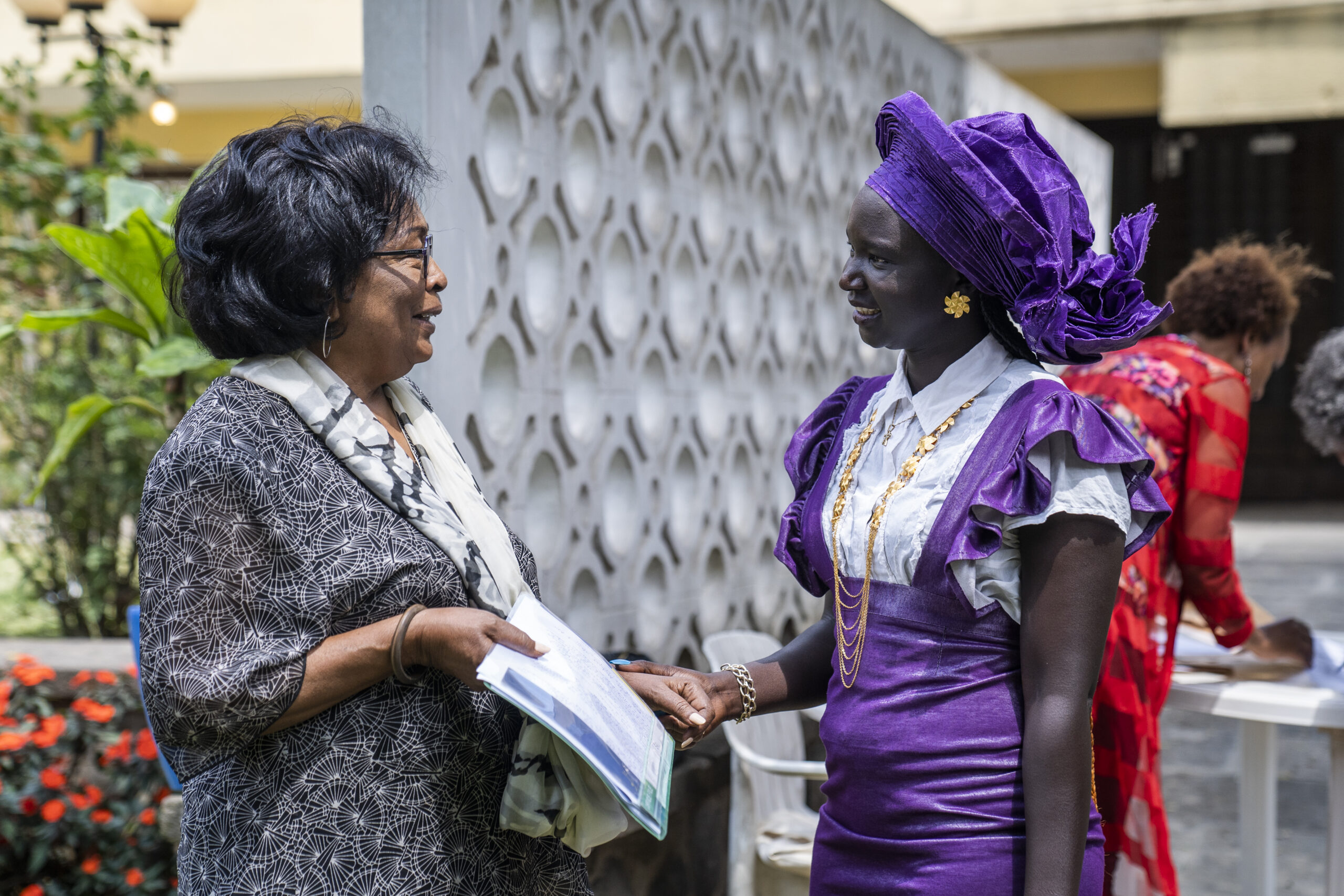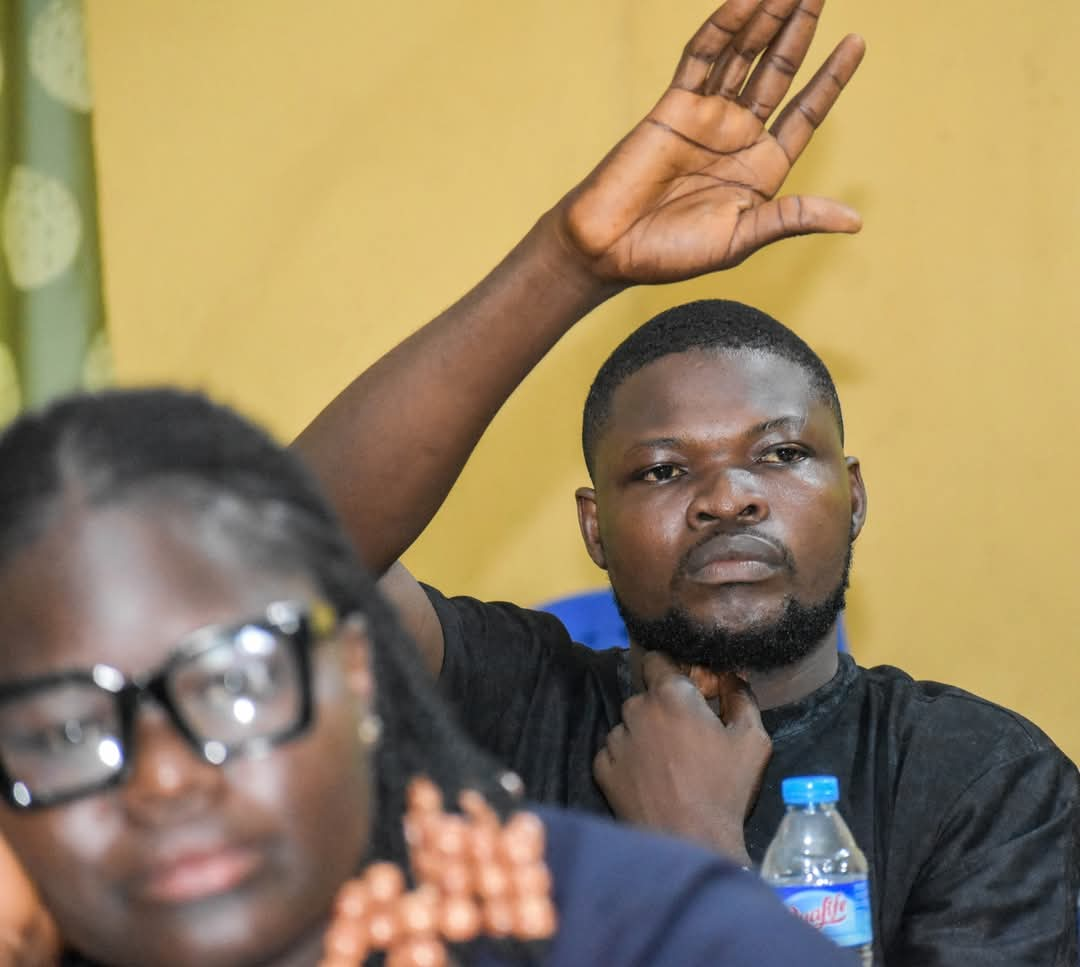Ethiopia: One woman’s journey from political prisoner to pioneer for dialogue
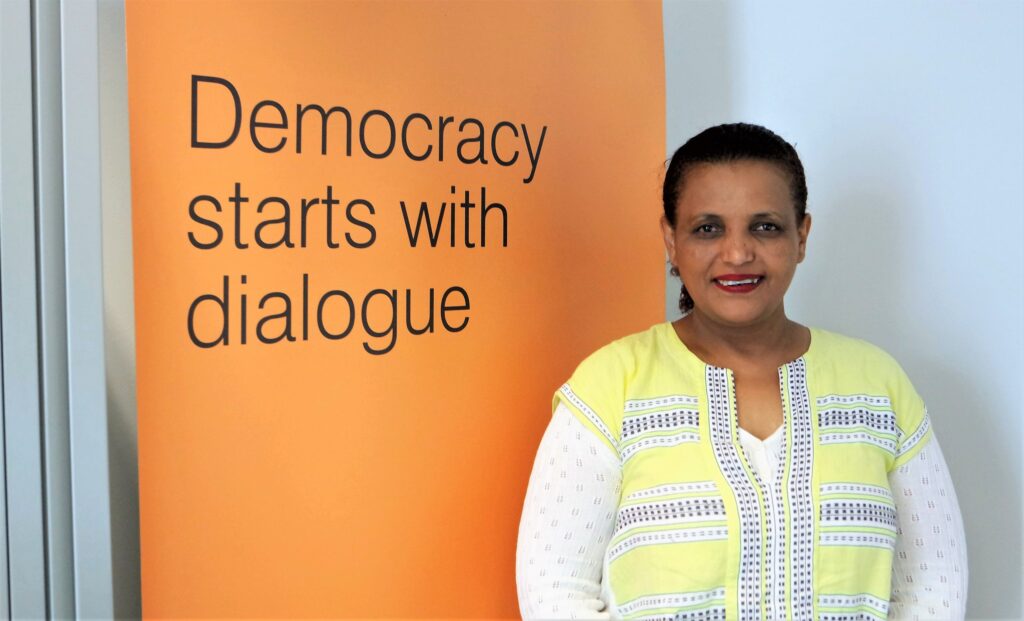
Birtukan Mideksa is not the kind of person to shy away from a challenge. As one of Ethiopia’s most high-profile political prisoners, she spent years behind bars in the 2000s, determined to stay true to her values and beliefs even under the toughest of circumstances.
Today, her challenge is helping to build and sustain a functioning multi-party democracy in Ethiopia as head of the National Election Board – and she is looking forward to the task with her customary optimism and determination.
A passion for democracy
“Along with my colleagues, we are trying to introduce reforms in many levels of our electoral process,” she says. “We have achieved certain milestones, but we still need to do more.”
Visiting The Hague recently with other National Election Board members on a fact-finding mission organized by NIMD, Birtukan spoke about the values that have guided her since she was a young woman from a modest background starting her career in law in the 1990s.
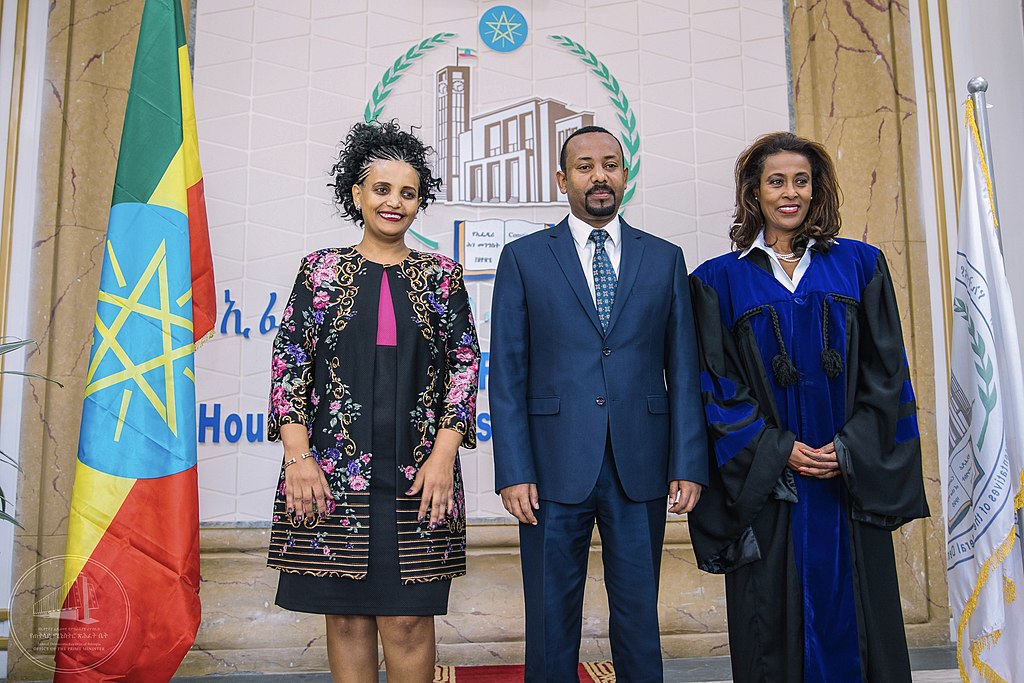
“My passion for democracy came from my studies and from the early days of my career when I was fortunate to join the judiciary,” she explains. “I couldn’t stand injustice in any form.”
She achieved success early, appointed as a federal judge when she was just 25. But the injustices she saw in the courtroom – and the limits of her position to help society on the whole – prompted Birtukan to embark on a career in politics.
“We had the ideals of the rule of law and the ideals of respecting human rights, but that was not always achieved in practice,” she says. “That led me to think in the direction of activism and political life, to face those crucial issues from bigger and wider perspective.”
“You know what you are doing is for a bigger, common good.”
She joined the Coalition for Unity and Democracy (CUD) ahead of elections in 2005, which were meant to be key step in moving Ethiopia from single-party rule to a genuine multi-party democracy. But the results were bitterly contested, with the ruling party claiming victory and the opposition alleging vote rigging. Opposition members were arrested and jailed. Birtukan was sentenced to life imprisonment on charges including treason, and was forced to leave her young daughter in the care of her mother as she entered prison.
It was the first of two stretches in jail, and Birtukan remembers how she kept her resolve by reading the writings of other political prisoners such as Myanmar’s Aung San Su Kyi, and keeping her end goal in sight.
“Achieving genuine democracy in Ethiopia was my personal aspiration and a collective political aspiration for my nation,” she says. “Those values are noble, and that gives you a strength that you know what you are doing is for a bigger, common good.”
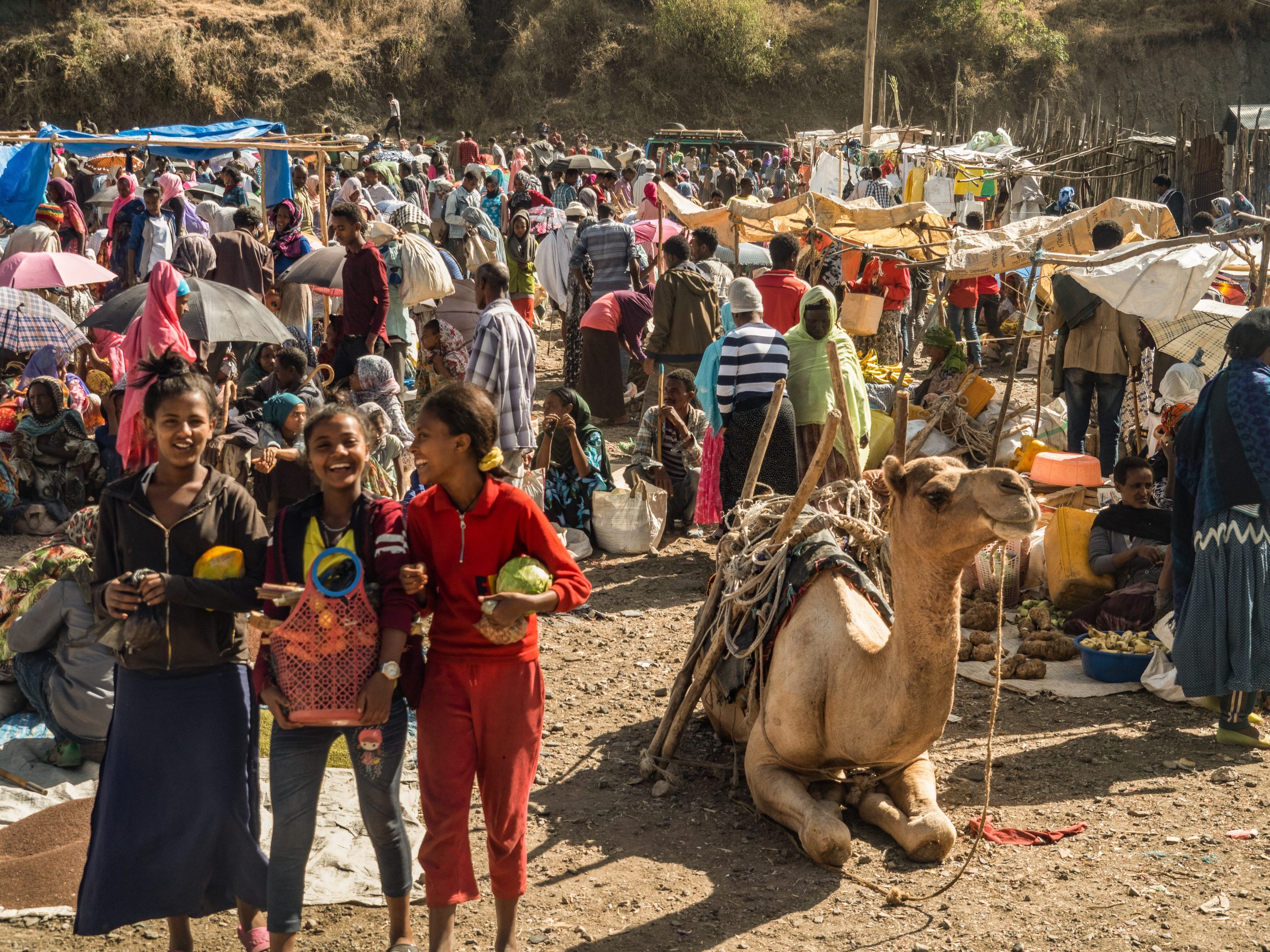
She finally negotiated her release in 2010, and moved to the United States with her daughter to become a fellow at National Endowment for Democracy. But Birtukan never lost faith in the potential for her home country to learn from its past and move forward.
So when Prime Minister Abiy Ahmed came to power in 2018 promising reform and lifting a ban on opposition parties, she accepted his invitation to return and take up her position at the National Election Board, seeing the appointment as a gesture of conciliation.
A tough task ahead
“It was important and inspiring, and gives confidence, especially for people who were still in the opposition,” she says. “I was one of them, and now I’m serving everybody including the ruling party. So to some extent, I think that gave confidence to the political actors.”
But Birtukan understands the enormity of the task ahead in a country with a history of single-party dominance and tensions between different regions.
“The democratic practices, democratic governance, and peaceful politics and dialogue were not institutionalized for decades,” she says “So to have an established electoral process, we need rules, we need rule of law, we need independent institutions.”
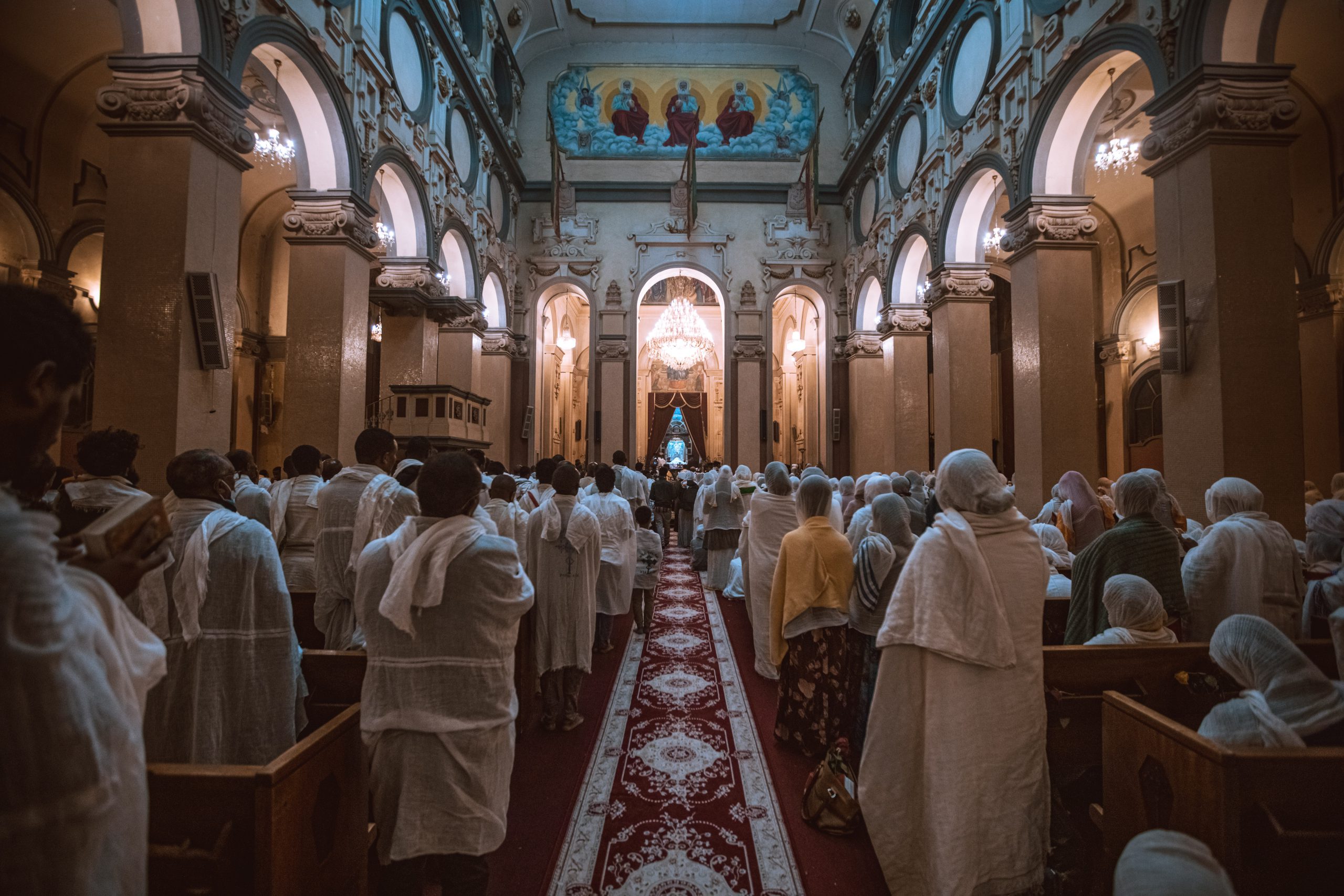
To create the conditions to allow the creation and maintenance of such important pillars of democracy, Birtukan is a strong advocate of dialogue.
“We, as the election management body, have been supporting the political parties in general, and facilitating their collaboration for almost three years,” she says. “The political actors have to learn how to talk to each other. It might sound easy, but it is not.”
Working together for the common good
Birtukan supported this dialogue in the run up to elections in June last year, which saw Prime Minister Abiy Ahmed elected for another term. But the elections were overshadowed by a conflict in the Tigray region.
“We are a country with all kinds of diversity – linguistic diversity and political diversity,” Birtukan explains. “As a country that was under an authoritarian system for decades, when the country opened up to democratic practices, we faced new challenges because this diversity was suppressed for a long time. So that led to polarization and conflicts in different parts of the country.”
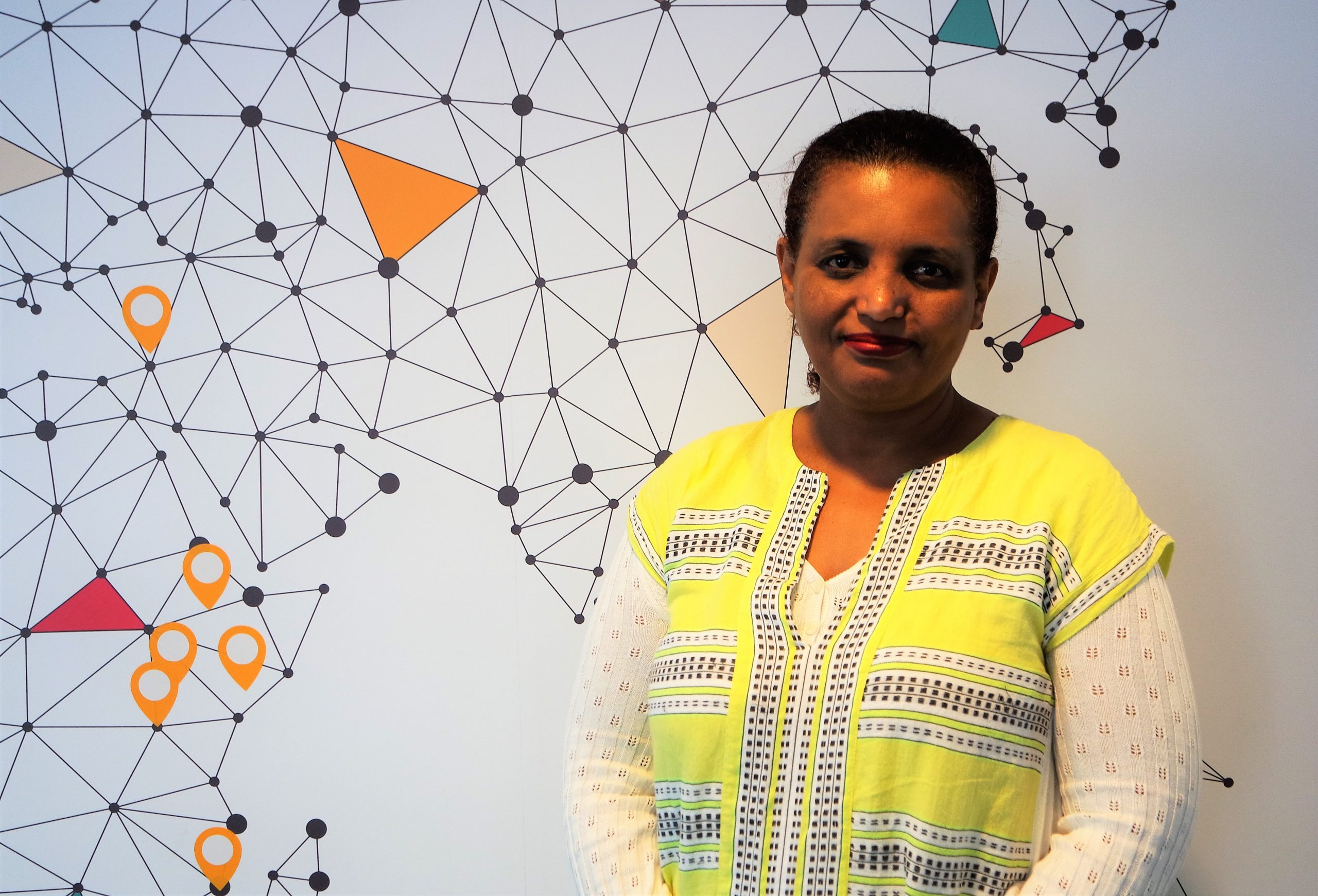
A national dialogue is now underway to try to resolve the conflict, and for Birtukan, this underscores why she must continue to advocate and encourage all political parties and ethnic groups to work together for the common good of the country.
“It starts with sitting with your adversary in the same room, even when there is a lot of animosity, and establishing rules and abiding by those rules,” she says.
Her other aspirations include encouraging more women and young people to enter politics, and helping political parties become responsive to the needs of the voters: “If you don’t have strong and capable political parties who can articulate the interests and the ideas of a significant portion of society or voters, then the process would be meaningless.”
Making progress in the right direction
NIMD Ethiopia is excited to be a partner on this journey, working with the National Election Board to help share knowledge, facilitate dialogue, and train up a new generation of politicians at the Ethiopian Democracy Academies.
Because as Birtukan summarizes, building genuine democracy is a process that takes a long-term commitment: “The voters will refine the process through elections – we have got to do it again and again, because it’s not a one-time shot kind of project, it’s about making progress in the right direction.”
